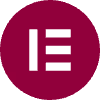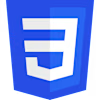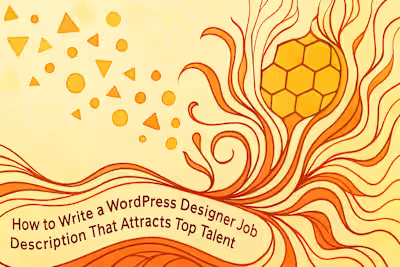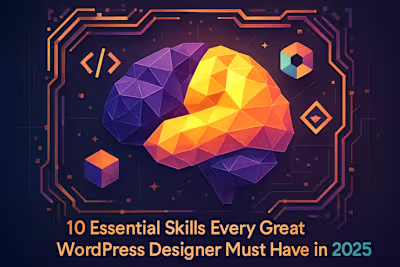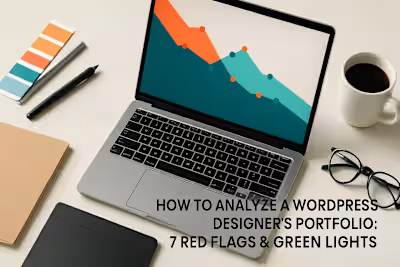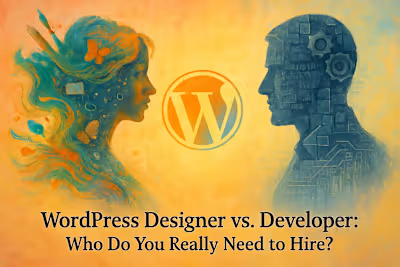15 Must-Ask Interview Questions for Your Next WordPress Designer
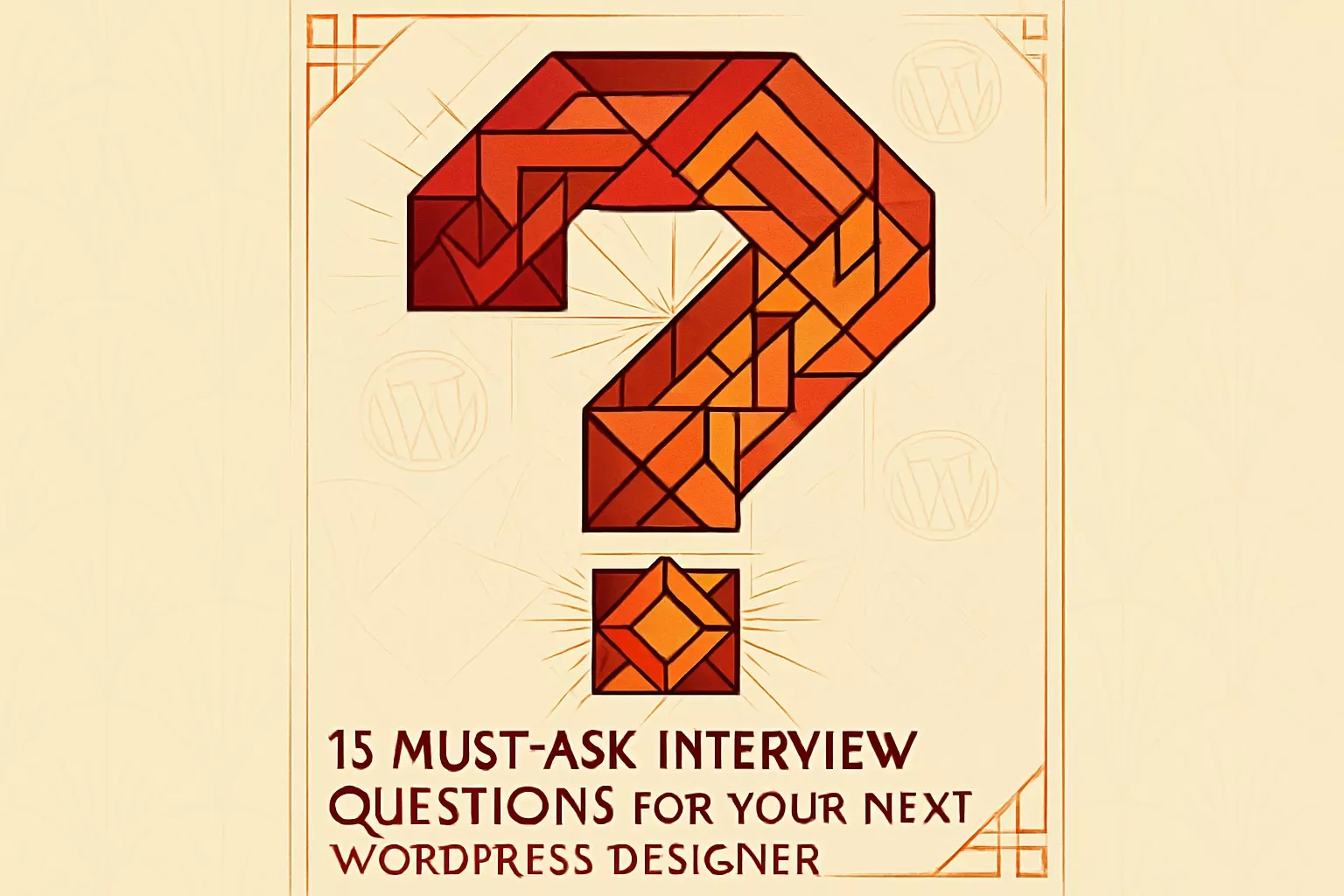
15 Must-Ask Interview Questions for Your Next WordPress Designer
Questions About Their Design Process and Philosophy
1. Can you walk me through your typical design process from start to finish?
2. How do you approach user experience (UX) in your designs?
3. How do you ensure your design aligns with a client's business goals?
4. How do you stay updated on the latest design trends and technologies?
Questions About Their Technical Skills and Tools
5. What page builders or themes are you most experienced with?
6. Can you describe a time you had to use custom CSS to solve a design problem?
7. How do you ensure your designs are responsive and mobile-friendly?
8. What's your experience with designing for e-commerce (WooCommerce)?
9. How do you consider website performance (page speed) during your design process?
Questions About Collaboration and Communication
10. How do you handle feedback or criticism you disagree with?
11. Describe your experience working with developers. How do you hand off your designs?
12. How do you manage your time and meet project deadlines?
13. What was a challenging project you worked on, and how did you overcome the challenges?
14. What questions do you have for me?
15. Can you provide references from past clients?
Conclusion
References
15 Must-Ask Interview Questions for Your Next WordPress Designer
Questions About Their Design Process and Philosophy
1. Can you walk me through your typical design process from start to finish?
2. How do you approach user experience (UX) in your designs?
3. How do you ensure your design aligns with a client's business goals?
4. How do you stay updated on the latest design trends and technologies?
Questions About Their Technical Skills and Tools
5. What page builders or themes are you most experienced with?
6. Can you describe a time you had to use custom CSS to solve a design problem?
7. How do you ensure your designs are responsive and mobile-friendly?
8. What's your experience with designing for e-commerce (WooCommerce)?
9. How do you consider website performance (page speed) during your design process?
Questions About Collaboration and Communication
10. How do you handle feedback or criticism you disagree with?
11. Describe your experience working with developers. How do you hand off your designs?
12. How do you manage your time and meet project deadlines?
13. What was a challenging project you worked on, and how did you overcome the challenges?
14. What questions do you have for me?
15. Can you provide references from past clients?
Conclusion
References
Posted Jun 15, 2025
Hiring a freelance WordPress designer? Use these 15 essential interview questions to evaluate their skills, process, and suitability for your project.


